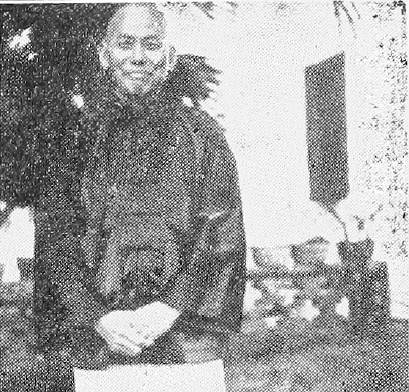You have free articles remaining this month.
Subscribe to the RP Witness for full access to new articles and the complete archives.
During the final years of the Chinese Civil War in the late 1940s, our South China Presbytery was comprised of several ministers: some American and some Chinese. When the Communists finished their conquest of the mainland in 1949, the Americans and some of the Chinese were able to escape, but the remaining Chinese ministers remained with their churches as long as possible. This month, we look at one who died for Christ.
Chung On Taai was born in early 1873 in Che Tsai, near one of our mission stations. While hostile to the gospel in his youth, he was hired as a laborer by the mission, and he joined the church in 1902. His neighbors and relatives soon began to persecute him, but he remained faithful to Christ and left for the mission center at Tak Hing to study the Bible more intensively. He was one of the original ruling elders of the Tak Hing congregation when it was fully organized in 1910.
Because evangelism opportunities were so extensive and laborers were so few, the South China mission relied on traveling workers: some ministers and unordained preachers constantly moved from town to town. Once Chung completed his Bible training in 1908, he began serving circuits of churches throughout the mission field. After nearly twenty years of serving little groups of believers, he was ordained to the ministry by the new South China Presbytery in 1926. Some of the larger mission stations, including Tak Hing and Lo Ting, had their own pastors, but Chung continued his longstanding pattern of itinerant ministry, never serving a single mission station for a long period of time.
Chung was able to see many conversions in his home village. His parents were converted at age 60. So many other Che Tsai villagers believed in Christ that the town took the name of “Sun Tsai,” or “little village of faith.”
After the Communist victory in 1949, Chung was determined to continue his service to Christ as regularly as possible. Remembering the persecution of his youth, he continued preaching in the rural mission stations undeterred by threats from the new government. Eventually, however, he was arrested and subjected to torture, and because he refused to renounce Christ, he was killed in 1954.
“Other people were tortured, not accepting release, so that they might gain a better resurrection” (Heb. 11:35)

